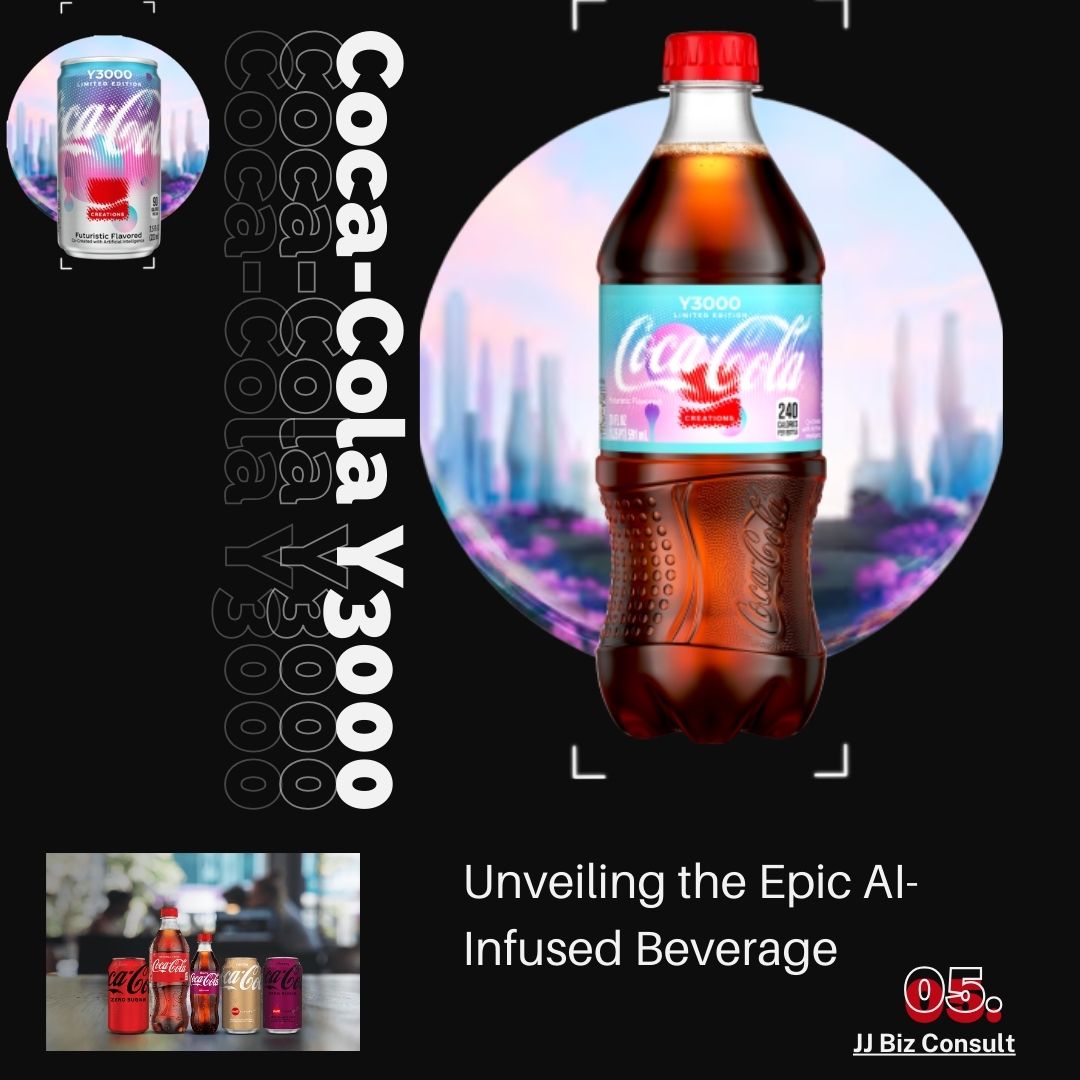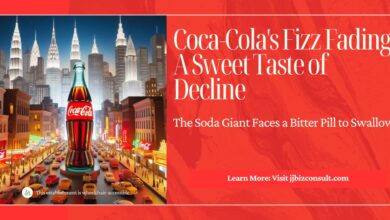Coca-Cola Y3000: Unveiling the Epic AI-Infused Beverage

Coca-Cola Y3000: Introduction
In a pioneering move that has sent ripples through the food and beverage industry, Coca-Cola has recently unveiled its latest innovation – Coca-Cola Y3000, an “AI-powered” beverage. This revolutionary development places Coca-Cola Y3000 at the forefront of a growing cohort of companies in the food sector that are harnessing artificial intelligence (AI) for both research and development (R&D) and marketing purposes. In this comprehensive blog post, we will delve into the details of Coca-Cola Y3000, explore the wider trend of AI adoption in the food industry, and examine how AI is transforming the way food companies operate in response to macroeconomic challenges.

Coca-Cola Y3000: An AI-Generated Taste of the Future
Coca-Cola Y3000, as the name suggests, is intended to transport your taste buds to the year 3000. While the flavors of the distant future remain a mystery, Coca-Cola’s innovative approach relies on AI to craft a beverage that captures the essence of what the future might taste like—rumored to be candy sweet.
This “limited-edition” drink features a label reminiscent of the early 2000s but is, in fact, a product of cutting-edge AI technology. Coca-Cola collaborated with the AI text-to-image model known as Stable Diffusion to create this unique beverage. Coca-Cola Y3000 is part of the company’s “Creations” line, introduced in February 2022, specifically tailored to attract the younger Generation-Z demographic.
AI’s Influence on Food and Beverage Companies
Coca-Cola Y3000’s journey into the world of AI-powered beverages is not an isolated case. In recent years, many food industry giants have turned to AI for various purposes, from enhancing product development to creating eye-catching advertising campaigns. Here is a brief timeline of notable AI collaborations in the food sector:
- February 2019: McCormick and IBM entered a partnership to leverage AI in developing new flavors and food products.
- February 2022: Kraft Heinz joined forces with Chilean food tech startup NotCo, using their proprietary AI, “Giuseppe,” to explore plant-based food research.
- April 2022: Mars signed a multi-year agreement with AI company PIPA to expedite the discovery of new, plant-based ingredients.
- January 2023: Atwater Brewery introduced its Artificial Intelligence IPA, designed with the assistance of ChatGPT, and used AI for its PR campaign.
- March 2023: Beck’s, owned by Belgian brewer Anheuser-Busch InBev, unveiled an AI-created beer called Beck’s Autonomous.
- April 2023: French company Bel Group and biotech startup Climax Foods joined hands to utilize AI in developing plant-based cheeses.
- September 2023: NotCo CEO Matias Muchnick announced a partnership with Mars Wrigley, highlighting the ongoing AI adoption in the food industry.

AI Beyond Cooking: Solving Broader Challenges
While Coca-Cola Y3000 shines as an example of AI’s role in crafting new flavors, AI has also found applications in addressing broader macroeconomic issues that the food industry faces. These include inflation, supply chain complexities, and labor shortages. One notable solution is the adoption of “cobots,” a blend of “collaborative” and “robots.” These cobots represent a form of incremental automation that helps companies cut costs while maintaining human input.
AI is making significant contributions in several areas of the food industry:
- Waste Reduction: AI algorithms help optimize production and reduce waste by predicting demand accurately, minimizing overproduction and food waste.
- Inventory Management: AI-driven systems enable companies to maintain optimal inventory levels, ensuring products are available when and where they are needed.
- Product Demand Forecasting: AI algorithms use historical data and market trends to predict future demand, aiding in production planning and supply chain management.
For instance, KFC and Taco Bell, part of Yum! Brands, have already adopted machine learning for managing product orders, demonstrating how AI is transforming everyday operations.
Coca-Cola Y3000: A Taste of the Future of Marketing
Coca-Cola Y3000’s venture into AI goes beyond crafting beverages; it signifies the expansion of AI’s role in the sales and marketing aspects of the food industry. As AI continues to shape the flavor of products, it also reshapes the flavor of marketing strategies. AI-powered campaigns, personalized customer experiences, and data-driven decision-making are becoming the norm.

Conclusion
Coca-Cola Y3000, the AI-infused beverage, serves as a compelling testament to the growing influence of AI in the food and beverage industry. As companies seek innovative solutions to meet consumer expectations, address economic challenges, and stay competitive, AI emerges as a powerful ally. Whether it’s crafting new flavors, optimizing operations, or revolutionizing marketing, AI is set to play an increasingly vital role in shaping the future of the food industry, ensuring it remains both delectable and efficient. Stay tuned as we continue to explore the ever-evolving landscape of AI in food and beverages.
Source: Quartz
Powerful AI Tools for Business – From Data to Dollars





